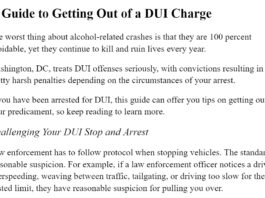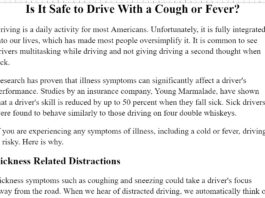SPONSORED CONTENT
Maryland legislators recently introduced new restrictions on ghost guns, attempting to balance the legal right to manufacture firearms at home with the technological challenges posed by this unique type of weapon.
What are Ghost Guns?
Also called “kits guns” and “80% guns,” a ghost gun is a fully-functioning firearm made with either a kit or printed using a 3D printer. The gun is made entirely at home. Unlike traditional guns, ghost guns don’t have serial numbers, making them virtually untraceable.
Ghost gun manufacturers argue they’re not selling actual firearms, so they’re not legally required to add a serial number. The lack of a serial number means ghost guns exist outside the traditional regulatory framework established by state and federal law. As a result, they’re easily obtainable by anyone prohibited from otherwise buying a gun legally.
The Dangers of Ghost Guns
Due to their untraceable nature and easy availability, ghost guns are frequently used in the commission of crimes. According to Montgomery County police chief Marcus Jones, the use of these guns is increasing throughout the county and state. In 2020, Montgomery County police confiscated 73 ghost guns. Fifty-eight people (55 adults and three juveniles) were arrested with ghost guns in their possession.
Ghost guns are especially popular among gang members. Additionally, crimes involving ghost guns disproportionally affect communities of color throughout Maryland.
Proposed Ghost Gun Legislation
Introduced by Montgomery County Council Vice President Gabe Albornoz, the proposed county legislation offers a multi-faceted approach to curb ghost-gun-related violence.
First, the bill bans minors from owning ghost guns. Manufacturing ghost guns in the presence of a minor, such as within the home where a minor lives, is also barred.
Additionally, the possession, sale, transfer, or manufacture of ghost guns is prohibited within 100 yards of any place of public assembly. Locations within that parameter include schools, churches, and community centers.
Finally, the bill regulates the sale and manufacture of receivers. Also called a frame, a receiver is a metal or polymer component that acts as a base for the entire firearm. Without a receiver, the gun can not exist. Under the new law, all unfinished receivers would require serialization. Additionally, a handgun license would be required to purchase an unfinished receiver.
Additional Impact of the Legislation
Beyond the specific regulations proposed, the legislation itself has a broader benefit. It introduces the concept of ghost guns into the county code, helping the law catch up with emerging technology.
However, legislators are also quick to point out that the law is not a ban. Manufacturing firearms for personal use remains legal.
“Law-abiding citizens have always been legally allowed to make guns, however, each state has their unique laws on wearing, carrying, and transporting guns, and individuals with guns need to follow their state’s laws,” said attorney Kush Arora. “While new technology increases the availability of homemade guns, the proposed bill doesn’t change this fundamental right.”
Final Thoughts
The ability for anyone to manufacture an untraceable firearm poses a huge array of challenges to public safety. While Maryland legislators hope to curb gun violence, they must also avoid infringing on the rights of law-abiding gun owners. As the proposed bill moves forward through the Maryland legislature, the future of ghost guns in Maryland will remain in a period of change.



